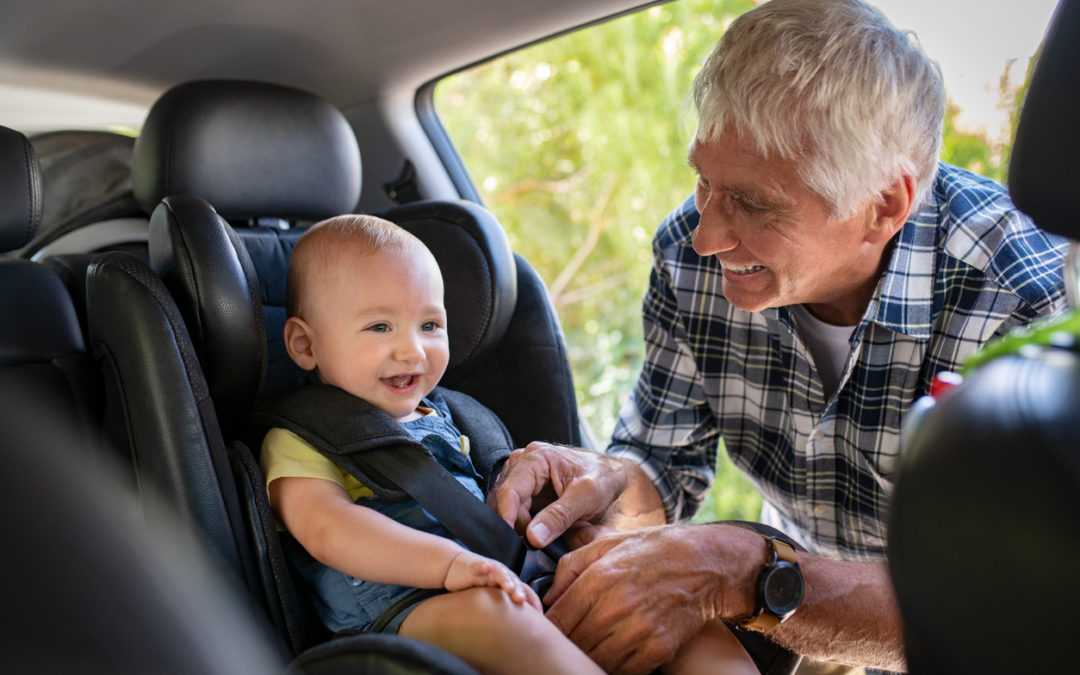Evenflo is facing multiple lawsuits involving children who were severely injured in the Big Kid booster seat, which many experts say is not safe for children under 40 pounds.
What You Can Do & How We Can Help
The Schmidt Firm, PLLC is currently accepting Evenflo booster seat induced injury cases in all 50 states. If your child was injured in a car accident in an Evenflo Big Kid booster seat, you should contact our lawyers immediately for a free case consultation. Please use the form below to contact our Product Liability Litigation Group or call toll free 24 hours a day at (866) 920-0753.
UPDATE: Class Action Lawsuit Filed for Evenflo Booster Seat
A man in California has filed a class action lawsuit claiming that Evenflo misled parents about the safety-performance of the Big Kid booster seats during side-impact collisions. Lawyers are seeking to represent anyone who bought a Big Kid booster seat since 2008.
What is the problem?
An investigative report by ProPublica is questioning the safety of the Evenflo Big Kid booster seat, which is marketed as “safe” for children who weigh as little as 30 pounds. Many 1-year-old toddlers weigh 30 pounds, but experts do not recommend booster seats until a child has outgrown a 5-point harness car seat.
Horrifying Side-Impact Crash Tests
Experts are also concerned about the side-impact safety of Evenflo’s booster seats, after horrifying crash-test videos emerged as part of lawsuits from children who were paralyzed.
Evenflo Big Kid Booster Seat Lawsuit
Evenflo is facing a lawsuit involving a 5 year-old girl who was sitting in a Big Kid booster seat when her car was T-boned. The catastrophic side-impact collision caused her to be paralyzed from the neck down.
The girl, Jillian Brown, weighed only 37 pounds. The lawsuit accuses Evenflo of falsely advertising the Big Kid booster seat as “safe” for children over 30 pounds, when actual crash-test videos showed significant injuries.
Lack of Side-Impact Testing Standards
Evenflo sells the Big Kig booster seat with a label that reads, “Side Impact Tested,” but Evenflo makes up its own tests and decides what passes and fails because there are no side-impact testing rules in the U.S (or rollover tests, for that matter).
According to investigators, the only way Evenflo would say the seat “failed” a crash-test would be if the dummy was thrown out of the seat, or the seat itself breaks apart.
Canada Requires 40-Pound Minimum for Booster Seats
In Canada, booster seats are not allowed for children who weigh less than 40 pounds. That is why Big Kid booster seats sold in Canada have a label that warns parents that children under 40 pounds risk “SERIOUS INJURY or DEATH.”
In the U.S., the exact same booster seat is labeled as safe for toddlers who weigh as little as 30 pounds. At least 6 companies sell booster seats for children under 40 pounds in the U.S.
Evenflo Booster Seat Recalls
Evenflo has recalled booster seats 3 times in Canada, most recently in 2012, for claiming the boosters were “safe” for children who weighed 30 pounds or less, according to ProPublica.
NHTSA Recommendation for Booster Seats
The National Highway Traffic Safety Administration (NHTSA) recommends keeping a child in a 5-point harness car seat until the child outgrows the seat’s maximum height or weight limits.
Do I have an Evenflo Booster Seat Lawsuit?
The Schmidt Firm, PLLC is currently accepting Evenflo booster seat induced injury cases in all 50 states. If your child was injured in a car accident in an Evenflo Big Kid booster seat, you should contact our lawyers immediately for a free case consultation. Please use the form below to contact our Product Liability Litigation Group or call toll free 24 hours a day at (866) 920-0753.
Attention Lawyers: We consider a referral from another law firm to be one of the greatest compliments. If your firm is interested in referring us a case or for us to send you a list of previous award judgments and/or average referral fees, please visit the Lawyer Referral section of our website.


 The Schmidt Firm, PLLC has been recognized as one of the nation’s leading plaintiffs' law firms and handles cases in all 50 states. We are very proud of our legal achievements, but equally self-respecting of our firm's reputation for providing personal attention to each and every client we represent.
The Schmidt Firm, PLLC has been recognized as one of the nation’s leading plaintiffs' law firms and handles cases in all 50 states. We are very proud of our legal achievements, but equally self-respecting of our firm's reputation for providing personal attention to each and every client we represent.

